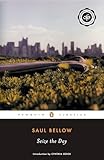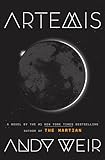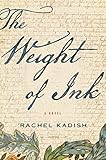Derek B. Miller caught the eye of readers of The Millions with his 2013 debut novel, Norwegian by Night, lauded by Richard Russo in his Year in Reading and staying atop our Top Ten for months. The novel featured an octogenarian ex-Marine, Sheldon Horowitz, who has lost his son in Vietnam and who tries to save another boy from his father, an Albanian war criminal. Set in Norway, the novel also introduced the wily cop Sigrid Ødergård; Miller followed it with The Girl in Green, in which two men involved in the Gulf War get a chance at redemption decades later. Now Miller is publishing American by Day, which sends Sigrid Ødergård from Norway to upstate New York to find her brother, who has disappeared after being named the prime suspect in his girlfriend’s mysterious death. Miller spoke with The Millions, via Skype, from his home in Oslo.
The Millions: You have a background in International Studies, I think.

 Derek B. Miller: The short version is that I got a master’s degree from Georgetown in National Security, in conjunction with Oxford, where I finished my degree. I knew I wanted to do a doctorate, so I stayed in Europe, futzed around for a while working for a newspaper, and then I moved to Geneva, Switzerland, where I got a second master’s and a Ph.D. from the Graduate Institute of International and Development Studies.
Derek B. Miller: The short version is that I got a master’s degree from Georgetown in National Security, in conjunction with Oxford, where I finished my degree. I knew I wanted to do a doctorate, so I stayed in Europe, futzed around for a while working for a newspaper, and then I moved to Geneva, Switzerland, where I got a second master’s and a Ph.D. from the Graduate Institute of International and Development Studies.
TM: What did you do after earning your degrees?
DBM: I spent about a decade in the United Nations Institute of Disarmament Research. Basically I was looking at countries recovering from war—jump-starting the economy, trying to collect weapons after a war, establishing a transitional justice system. So I worked on that for a long time, trying to push the elephant of the United Nations in a direction that I thought was both more pragmatic and ethical.
TM: That wasn’t exactly the Iowa Writers’ Workshop, was it?
DBM: No [Laughs].
TM: So how did you become a novelist?
DBM: Well, I think the idea of creative writing was planted in my head back at Sarah Lawrence, which at the time, 1988 to ’92, had the only undergraduate creative writing program in the country. I didn’t actually do creative writing there, but I think it demystified the notion that writing is something only geniuses or crazy people do. When I tried to write, my first manuscript took me three years. It wasn’t very good, but some of the tone, my approach to characterization, my approach to the relationship between tragedy and comedy—I can look back on my efforts from my mid-20s, and it’s clearly my writing. I found that short stories weren’t for me. So I just kept writing.
TM: So all these years you’re traveling around working for the U.N.—and you’re writing fiction on the side, as an apprentice?
DBM: I was writing. I have a good education for finding patterns in data and building theory, and I think I approached writing from both a creative perspective and an analytical one. I asked fundamental questions I felt I needed to ask in order to write better, such as: What is a story? What differentiates a story from a mere sequence of events? What is the nature of dramatic tension, and where does it come from? How do you deal with large gaps of time? Lots of architecture and craft issues. So I asked these questions, I interrogated the material I was reading to see how different authors achieved that. I wasn’t trying to copy them, I was trying to learn. And it took me a long time to figure it out.
TM: Norwegian by Night, your first novel, resonated with readers of The Millions—and a lot of other readers. Do you remember, was there a day you started writing that book, or did it sort of morph into shape over the years?
DBM: What happened was, I had written a manuscript prior to that, and it didn’t work. There were two reasons why. The architecture of the story was all over the place, and my protagonist was too milquetoast. He just wasn’t interesting enough. Sheldon Horowitz was a minor character in that failed effort, and what I found was that my secondary characters were great. They were relieved of the burden of having to be the protagonist, and that let them be far more decisive and funny and wild and everything else. So when it came time to try again, I decided to move Sheldon Horowitz forward. The reason was because I was very close to my grandfathers and they were dying at that time, and my son Julian was born in 2008, which was when I wrote Norwegian by Night. The ending of the book came to me while I was at the hospital waiting for Julian to be born—it was by C-section, so it was scheduled. I was sitting there and I probably should have been thinking about my wife, Camilla, but the fact of the matter is that I was thinking about the ending of the book. And once I realized how the pieces fit together, I wrote that book in about a year.
TM: Your protagonist, Sheldon Horowitz, an 82-year-old Marine veteran who lost is son in Vietnam, feels guilt but has a second chance to redeem himself. Guilt seems to be a big engine in your fiction. Is that a fair thing to say?
DBM: Guilt is a funny word. It comes about from making decisions that in retrospect you feel were fundamentally wrong—getting drunk and running over a kid, pretty straightforward. Sheldon’s guilt over his son is far more complex than that—it’s tied up with patriotism, his Jewish identity, things that are too complex to pin on a bad decision. They’re the consequences of a long life lived. I think loss is a stronger word.
TM: Let’s bring it up to your new book, American by Day. Marcus Ødegård, the brother of the protagonist Sigrid, an Oslo cop—he’s off in America and he’s feeling guilt or loss or regret over his mother’s death from cancer years ago. And now his lover in America dies under mysterious circumstances—I don’t want to give too much away—but again I’m thinking about Sheldon Horowitz. Here’s something that happened years ago that a person’s carrying around like a stone in his stomach—and trying to figure out how to come to terms with it. I guess you could call that loss.
 DBM: I think in Marcus’s case he feels he should have spoken up and he didn’t—and that led to his mother’s death. With Marcus I was thinking specifically of a scene from a Saul Bellow book called Seize the Day. A middle-aged guy is having a breakdown, saying, “Are you telling me that I’m not who I think I am? That I’ve lived my life under an illusion of who I thought I was?” If you wake up and you’re 50 years old and you find out you’ve been living under a delusion since childhood and clearly you’re never going to recover the life you might have led, if only—that was a very interesting and powerful theme that I wanted to explore as a way of looking at the way tragedy and crime can go together. I wanted the story of Marcus and his American girlfriend, Lydia, to be about the result of these rich but incredibly different lives, that the collision of those lives created this moment of possibility that ended very, very badly. That felt like an interesting way to create a story—not so much a crime, but to create a story that on the surface looks like a straightforward mystery, but the ultimate mystery is the way these two lives collided to create a tragedy.
DBM: I think in Marcus’s case he feels he should have spoken up and he didn’t—and that led to his mother’s death. With Marcus I was thinking specifically of a scene from a Saul Bellow book called Seize the Day. A middle-aged guy is having a breakdown, saying, “Are you telling me that I’m not who I think I am? That I’ve lived my life under an illusion of who I thought I was?” If you wake up and you’re 50 years old and you find out you’ve been living under a delusion since childhood and clearly you’re never going to recover the life you might have led, if only—that was a very interesting and powerful theme that I wanted to explore as a way of looking at the way tragedy and crime can go together. I wanted the story of Marcus and his American girlfriend, Lydia, to be about the result of these rich but incredibly different lives, that the collision of those lives created this moment of possibility that ended very, very badly. That felt like an interesting way to create a story—not so much a crime, but to create a story that on the surface looks like a straightforward mystery, but the ultimate mystery is the way these two lives collided to create a tragedy.
TM: You’re living in Oslo now?
DBM: Right.
TM: How did you wind up there?
DBM: I met a Norwegian girl and she outsmarted me.
TM: Aha. Where did you two meet?
DBM: Geneva. We were both working in the same think tank on weapons. Basically it was an office romance.
TM: The Scandinavian literary tradition is of course gigantic—from Ibsen to Knut Hamsun to Astrid Lindgren up to Jo Nesbø. As an American writer in Norway, is that a cloud over your head? Something you don’t think about? An inspiration? I’m curious what it’s like writing in a place that’s very different from where you grew up in New England.
DBM: I’ve been living abroad for 22 years now. The fact is, I still haven’t read Jo Nesbø and he’s not on my short list. That kind of crime novel—where something horrific happens and somebody’s investigating and everybody’s miserable—it just bores me. I see myself as an American writer, and what I mean by that is that I’m writing into the American literary tradition and drawing quite heavily from it. Though I’m happy to be included in a global conversation on literature as well, that’s the footing from which I have that conversation.
 When Don DeLillo published Underworld, it was came out in France. At the beginning of the book, it said, “translated from the American.” Right? And DeLillo said in an interview that he actually quite liked that because while he and everyone else knows that American is not a language, it was nice to emphasize the vernacular. It’s kind of a compliment, if you choose to see it that way.
When Don DeLillo published Underworld, it was came out in France. At the beginning of the book, it said, “translated from the American.” Right? And DeLillo said in an interview that he actually quite liked that because while he and everyone else knows that American is not a language, it was nice to emphasize the vernacular. It’s kind of a compliment, if you choose to see it that way.
TM: You’re not reading Jo Nesbø. So what are you reading?





 DBM: What’s on my desk is Richard Russo’s debut, Mohawk. After that I want to read Beautiful Ruins by Jess Walter, who I have not read before but I read the first chapter and loved it. I just finished The Marriage Plot from Jeffrey Eugenides, which I quite liked. I just finished The Weight of Ink by Rachel Kadish, which I thought was exquisite. I do not write reviews, but I did write to her and tell her I think she’s absolutely wonderful. I haven’t checked in with Nick Hornby in a while. Then there’s Andy Weir’s new book, Artemis—he wrote The Martian, which became the movie with Matt Damon.
DBM: What’s on my desk is Richard Russo’s debut, Mohawk. After that I want to read Beautiful Ruins by Jess Walter, who I have not read before but I read the first chapter and loved it. I just finished The Marriage Plot from Jeffrey Eugenides, which I quite liked. I just finished The Weight of Ink by Rachel Kadish, which I thought was exquisite. I do not write reviews, but I did write to her and tell her I think she’s absolutely wonderful. I haven’t checked in with Nick Hornby in a while. Then there’s Andy Weir’s new book, Artemis—he wrote The Martian, which became the movie with Matt Damon.
TM: I guess that leads to the inevitable question: What are you working on now?
DBM: I’ve written two things. I’ve written a draft—I don’t know if I should call it science fiction, maybe speculative fiction—of a post-post-post-post-apocalyptic story set a couple hundred years in the future. It’s called Radio Life, and I’m going back to revisions of it. I haven’t shared it with anybody but my agent. And I’m writing a contemporary inter-family drama set on the coast of New England called A Simple Arrangement. I’m hoping to have both of them done, in draft form anyway, by the end of the year.
TM: Are you a full-time writer now?
DBM: I would say yes. I feel the novelists around me are extraordinarily good, and while you’re always competing against yourself to be the best writer you can be, you’re also competing against the market in order to survive, and I can’t write this stuff on my knee on the way to class anymore. Which isn’t to say you try to anticipate the market, because that’s almost pointless.
TM: But you are trying to make a living.
DBM: Yeah, I have a wife and two kids and this is what I’m doing. So if I can’t pull it off, we don’t eat. It has gone extraordinarily well. I’m not a bestseller so I don’t have bestseller money, but I’m writing full time now and have been for about two years.
TM: Is it a good life?
DBM: It’s wonderful. It’s like walking a high wire without a net, but it’s a second career and it’s a chance to turn a corner. I feel I can really appreciate it at this point in my life because it’s the first job I’ve ever had where it’s just absolute blue sky, where instead of being penalized for being creative, I’m encouraged to do it. It’s an amazing space to be in.
This interview was produced in partnership with Houghton Mifflin Harcourt.
The post The Next Great American Crime Writer May Be Living in Norway appeared first on The Millions.
from The Millions https://ift.tt/2GWjTWh
Comments
Post a Comment